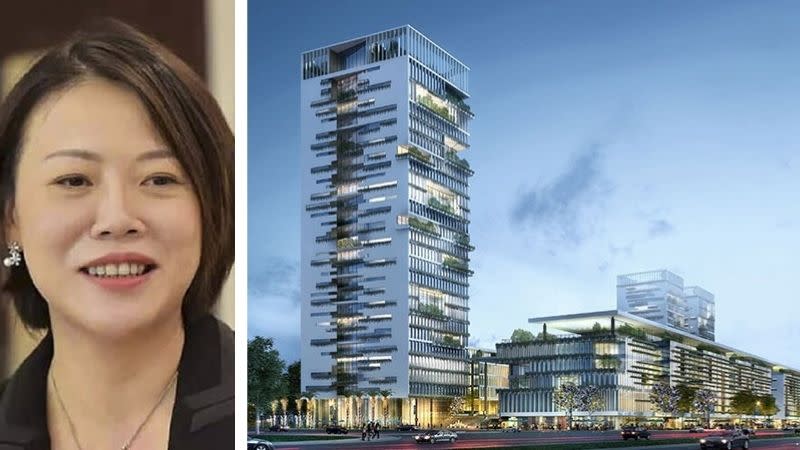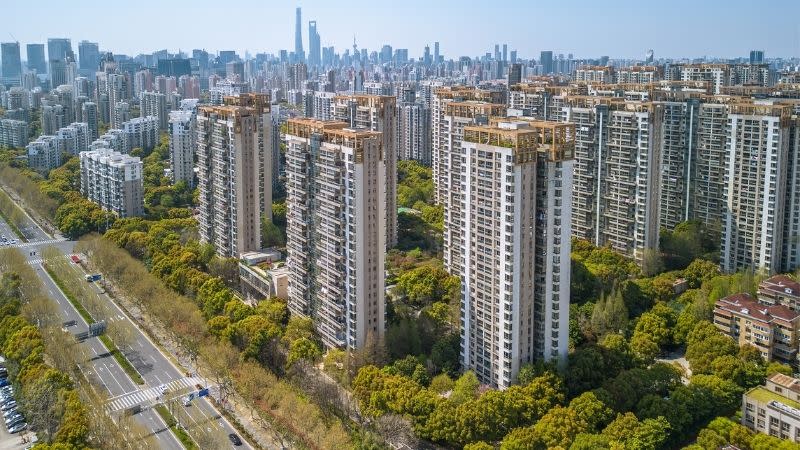China in Damage Control as Court Orders Evergrande Liquidation

In March 2021, businessman Lin Ho Man invested $167.4 million in a company called China Evergrande Group through his company Top Shine Global.
No-one could have guessed what would happen in just a few years.
China Evergrande Group, a behemoth in China’s property sector, had, according to its 2022 annual report, more than 1200 projects under way.
But in 2021, China’s second largest developer, defaulted on its debt, causing a knock-on for other and projects in the building sector.
In June, 2022, a liquidation petition was filed by Lin Ho Man’s Top Shine Global in an attempt to get back the funds invested in the Evergrande subsidiary.
Now the world’s most indebted property developer has been ordered by the Hong Kong High Court to begin the liquidation process after a hearing that has lasted 18 months.
Evergrande’s fall
In 2021, when Evergrande defaulted on its debt, the shockwaves cascaded through other China-based property developers and companies.
One by one, many of them found themselves in hot water as companies pulled out of projects across the world on the orders of their head offices, leaving projects half completed if indeed even begun.
Meanwhile, the Chinese government had restricted capital moving out of the county to keep the local economy going and keep money within it.
Unable to carry on as previously, Country Garden, along with developers such as Poly, Greenland, Dalian Wanda and Yuha, moved back from Australian projects.
Branded as Risland Australia, Country Garden, with more than 3000 projects on its books, filed a notice with the Hong Kong Stock Exchange late last year that it would default on payments.
In October 2023, The Urban Developer’s Phil Bartsch reported that the company had lost $772 million in value after it failed to pay $35.4 million in bond payments in August, 2023 and was then racing to pay another $24.3 million in October.
In China, where the economy has strongly relied on the property sector for between 25 to 30 per cent of its gross domestic product, the crisis has unearthed certain industry practices where home deposits are used to gain bank loans not for constructing and completing current projects but starting new ones.
It has left many waiting for new homes they were promised and had paid for, and China with the worst property market it has had in almost a decade.
Since the Hong Kong ruling, China’s government has come out with a slew of measures to minimise the damage to the economy.
China’s market regulator has now suspended securities lending of restricted shares listed on China’s exchanges in a bid to stablise stock prices.
Stock prices in Hong Kong have jumped after the news.

The hearing
For nearly two years, Evergrande has been working on a $23-billion debt revamp plan with a group of creditors termed the ad hoc bondholder group.
That plan failed in late September, 2023 when Evergrande announced that its founder Hui Ka Yan was being investigated on suspicion of criminal activity.
Throughout the process, Evergrande has tried a stay of execution strategy consistently asking for more time to work on repaying its debt, even filing for bankruptcy in the United States.
It recently won a seventh reprieve in early December when creditors failed to get a push for liquidation through.
A group of offshore creditors joined the petition afterwards, collectively holding more than $9.1 billion in offshore notes.
Hong Kong High Court Justice Linda Chan has now handed down the world’s first court-ordered liquidation of what is currently the world’s most indebted property developer.
Evergrande is still able to appeal against the winding up order with creditors still needing to fill out a proof of debt form to provide to the provisional liquidator.
Justice Chan presided over the hearing, waiting for Evergrande to provide a proposal for how it will tackle its more than $455.2 billion of debt.
“I think it is time for the court to say enough is enough,” Chan said in her ruling.
“The hearing has lasted for one-and-a-half years, and the company still has not been able to bring forward a concrete restructuring proposal.”
The company still has $364.1 billion in assets and creditors will be able to request that the provisional liquidators keep them updated throughout the process.
It remains to be seen how the order will affect Evergrande’s assets in China but staff in Hong Kong will be able to access funds for unpaid wages.
China’s Supreme Court and Hong Kong’s Department of Justice told the media a signed agreement is in place for the reciprocal recognition and enforcement of judgments in civil and commercial cases effective immediately in both China and Hong Kong.
Mark Wizel, of Wizel Property Group, who has just returned from Nanjing, said this was to be expected of the government.
“Fundamentally what people need to understand is that the goal of the Chinese government is ultimately to look after the people,” Wizel says.

The impact on Australia
Wizel says that the effect on the Australian property sector was likely to be minimal.
“The effects, to the best of my knowledge, will be absolutely nothing in terms of Australian real estate,” Wizel says.
“A lot of the foreign capital that is looking to enter the Australian market at present is fresh capital with different return hurdles to what it would have been in 2021 when the return hurdles would have been a lot less.”
Wizel also said that investors would have expected the verdict.
“It’s a pretty significant matter—you are talking about $300 billion of debt effectively, and this matter has been going on since 2021,” Wizel said.
“I highly doubt that any investor that had significant funds exposed to Evergrande would find it surprising that the Hong Kong High Court has ruled in favour of the liquidation.”














